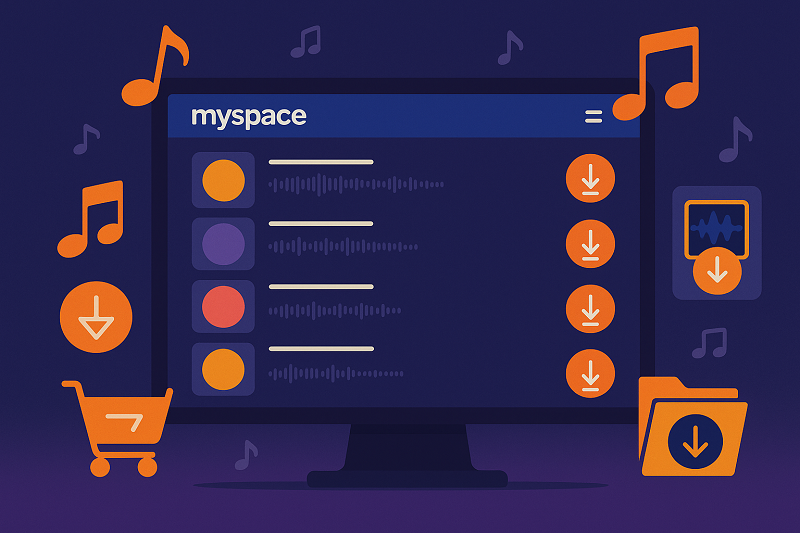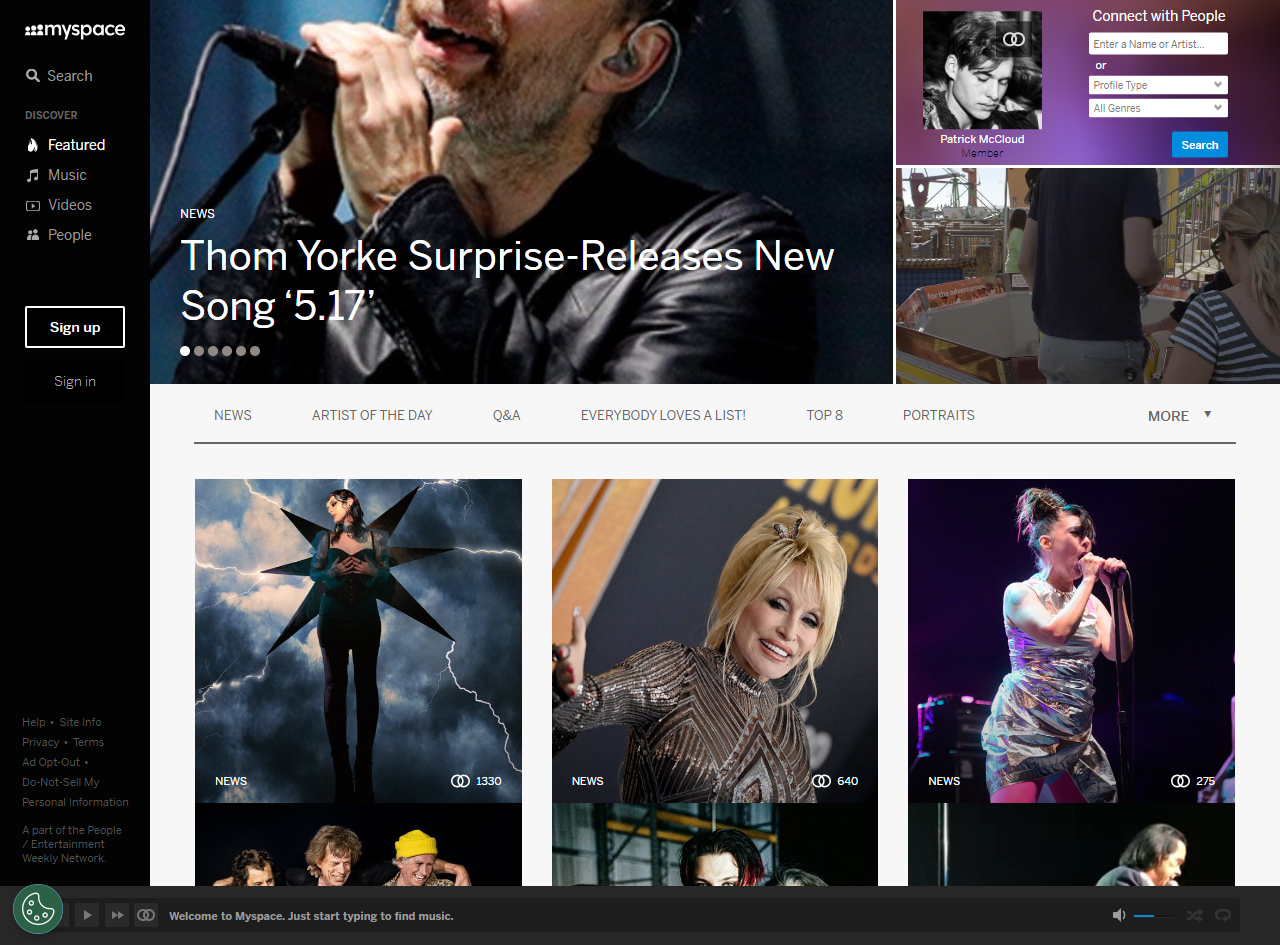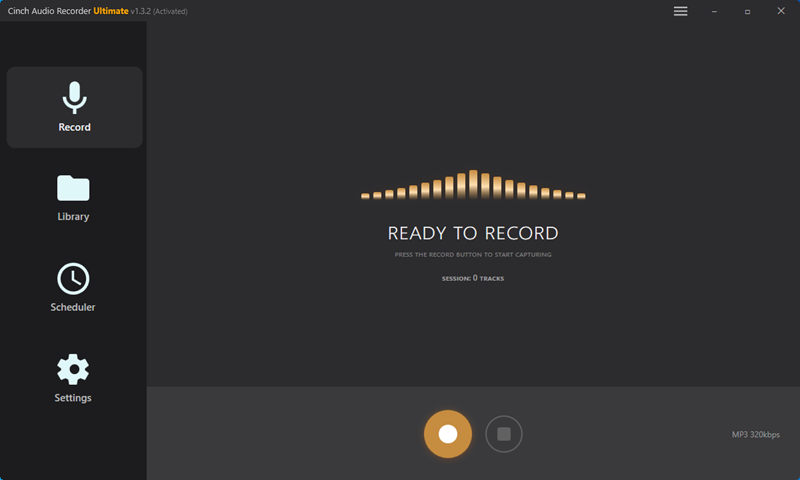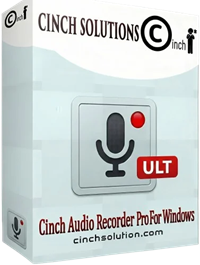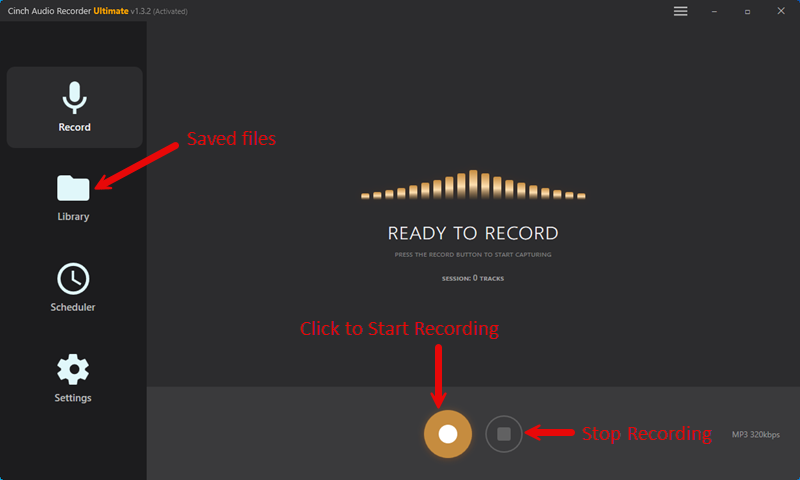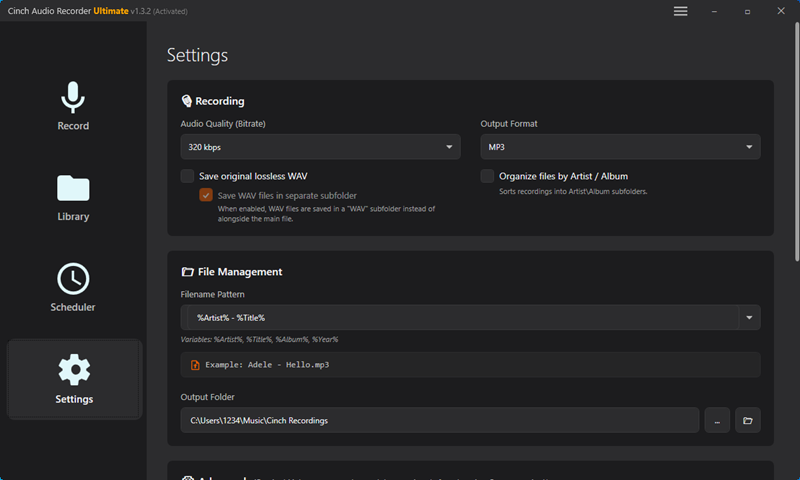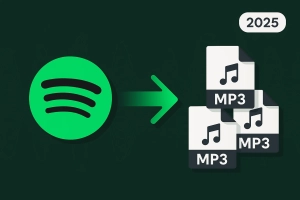What if you could easily capture and save any song from MySpace, even those that seem impossible to download?
Whether you’re trying to recover lost tracks from the platform’s infamous data loss or simply want to build your personal music collection, downloading music from MySpace doesn’t have to be a frustrating experience. With the right approach and tools, you can successfully save your favorite MySpace tracks in high-quality formats, complete with proper metadata and ID3 tags.
This comprehensive guide will walk you through multiple proven methods, from official purchasing options to professional audio recording solutions, ensuring you never lose access to the music you love again.
In This Article:
What’s Really Left of MySpace’s Music Empire?
From Social Media Giant to Music Graveyard
MySpace launched in 2003 as a revolutionary social networking platform that gave musicians and artists an unprecedented way to share their work with the world. At its peak between 2005 and 2008, MySpace was the largest social networking site globally, serving as the launching pad for countless artists.
However, the platform’s decline was as dramatic as its rise. Today it exists primarily as a music-focused entertainment portal owned by Meredith Corporation.
The Catastrophic Data Loss That Changed Everything
In March 2019, MySpace admitted to losing over 50 million songs uploaded between 2003 and 2015 due to a server migration error.
This wasn’t just a technical glitch—it was a cultural catastrophe that wiped out more than a decade of musical history. Independent artists lost their only copies of early recordings, fans couldn’t access beloved tracks, and an entire era of internet music culture vanished overnight.
💡 Expert Insight: Having worked in digital preservation for over 10 years, I’ve seen how platform dependencies can devastate personal archives. The MySpace data loss serves as a stark reminder that relying solely on third-party platforms for storing irreplaceable content is a risky strategy.
Your Official Options (And Why They’ll Disappoint You)
The Amazon and iTunes Integration Route
MySpace does offer some legitimate download options through partnerships with major music retailers. When you find a song with a “Buy Song” button, clicking it redirects you to Amazon Music or iTunes, where you can purchase the track for $0.99 to $1.29.
The reality check: This method only works for commercially available tracks that artists have specifically enabled for purchase. Most user-uploaded content, independent releases, and older tracks lack this option entirely.
MySpace’s Built-in Download Feature (When It Works)
Some tracks feature a direct download button, allowing you to save files in M4A format. However, this feature depends entirely on artist permissions and is increasingly rare.
Limitations you’ll encounter:
- Only available for select tracks
- Limited to M4A format
- No quality options
- Requires artist approval
- Often non-functional for older uploads
Recovering Lost Treasures from the Internet Archive
The MySpace Dragon Hoard: A Digital Archaeology Project
The Internet Archive has partially rescued MySpace’s lost music through the “Dragon Hoard” collection, which preserved tracks uploaded between 2008 and 2010. This community-driven effort represents one of the most significant digital preservation projects in internet history.
What you’ll find: The collection contains approximately 490,000 tracks from the peak MySpace era, including many rare recordings that exist nowhere else online. Visit the Dragon Hoard at archive.org/details/myspace_dragon_hoard_2010 to access the search interface.
Quality and Completeness Reality Check
While the Dragon Hoard is invaluable, it comes with significant limitations. Audio quality varies widely, with many tracks showing compression artifacts. The collection represents only a fraction of MySpace’s original content, focusing primarily on the 2008-2010 period.
⚠️ Important Note: Downloaded files from the Internet Archive may lack proper metadata and ID3 tags.
The Professional Solution That Actually Works
Why Serious Music Collectors Choose Recording Software
For users who need reliable, high-quality results, professional audio recording software offers the most comprehensive solution. Unlike free methods that often fail or produce poor results, dedicated recording tools can capture any audio playing on your computer with pristine quality.
Cinch Audio Recorder: Your All-in-One Music Capture Solution
Let’s be honest—for many users, free methods and official downloads cover basic needs. But when you’ve tried these approaches and still encounter limitations like missing tracks, poor quality, or compatibility issues, you need a more robust solution.
Cinch Audio Recorder doesn’t replace official features; it complements them when you need more flexibility. The goal isn’t to bypass legitimate channels, but to provide a reliable backup when other methods fail.
Similar to how we approach recording Spotify music, the key is having multiple options for different scenarios.
Real-world scenarios where Cinch excels:
- Capturing rare tracks not available for purchase
- Recording live streams or exclusive content
- Creating high-quality backups of your existing collection
Download Cinch Audio Recorder Ultimate:
Step-by-Step Recording Process
1. Initial Setup and Configuration
After installation, launch Cinch Audio Recorder and configure your audio source. The software automatically detects your system’s audio output, but you can manually select specific applications if needed.
2. Quality Settings Optimization
Access the settings panel to choose your preferred output format. For MySpace recordings, I recommend MP3 at 320kbps for the best balance of quality and file size, or WAV for lossless archival purposes.
3. Recording Your MySpace Tracks
Click the red Record button in Cinch, then start playing your desired MySpace track. The software captures everything in real-time, automatically detecting track boundaries and adding appropriate metadata.
4. Automatic Ad Filtering
When recording from free streaming services, Cinch can automatically detect and remove audio advertisements, ensuring your music collection stays clean and professional.
💡 Pro Tip: You can record silently by muting your system speakers while keeping the music player volume up. This allows you to capture audio without disturbing others, perfect for late-night recording sessions.
User Success Story: “I recovered my entire 2009 MySpace playlist using Cinch Audio Recorder. The quality was perfect, and I even got the metadata automatically. Saved me hours of manual work!” – Sarah M., Music Blogger
Advanced Features for Power Users
Cinch includes a built-in editor for creating custom ringtones from your recorded tracks. Simply select your favorite 20-30 second segment and export it in the appropriate format for your device.
Free Alternatives (But Here’s What You’re Giving Up)
MP3Juice and Similar Conversion Services
For users seeking free alternatives, online conversion services like MP3Juice offer basic functionality. These services work by searching for audio files across various sources and providing download links.
⚠️ Significant limitations:
- Inconsistent audio quality
- No metadata or ID3 tags
- Potential security risks
- Limited success rate for obscure tracks
Browser Extension Solutions
Several browser extensions claim to download audio from streaming sites, but their effectiveness with MySpace is limited and often unreliable.
The Ultimate Method Comparison
| Method | Audio Quality | Success Rate | Cost | Metadata Support | Ease of Use |
|---|---|---|---|---|---|
| Official Purchase | Excellent (320kbps+) | 95% for available tracks | $0.99-1.29/song | Complete | ⭐⭐⭐⭐⭐ |
| Cinch Audio Recorder | Excellent (up to lossless) | 100% for playable audio | $25.99 one-time | Complete + customizable | ⭐⭐⭐⭐⭐ |
| Internet Archive | Good (variable) | 60% for 2008-2010 tracks | Free | Limited | ⭐⭐⭐ |
| Online Converters | Variable (often poor) | 70% for popular tracks | Free | None | ⭐⭐⭐ |
| Built-in Download | Good (M4A only) | 30% availability | Free | Basic | ⭐⭐ |
Choosing the Right Method for Your Needs
📊 Quick Recommendation Score:
🥇 Best Overall: Cinch Audio Recorder (9.5/10)
- Perfect for serious collectors and consistent results
🥈 Best Free Option: Internet Archive Dragon Hoard (7.5/10)
- Great for historical tracks from 2008-2010
🥉 Most Convenient: Official Purchase (8.5/10)
- When available, offers guaranteed quality
For occasional downloads: Start with official purchase options or the Internet Archive for older tracks.
For building a comprehensive collection: Invest in professional recording software like Cinch Audio Recorder for consistent results.
For budget-conscious users: Combine Internet Archive searches with selective use of online converters.
For rare or exclusive content: Professional recording software is often the only viable option.
Troubleshooting Your Download Challenges
When Recording Software Fails to Capture Audio
Common solutions:
- Run the software as administrator
- Check audio driver compatibility
- Verify system audio isn’t muted
- Update your audio drivers
Legal and Ethical Guidelines
Recording music for personal use typically falls under fair use provisions, but it’s important to respect copyright laws and artist rights. Never redistribute copyrighted content, and consider supporting artists through official purchases when possible.
For more insights on digital rights management, check out our guide on Digital Rights Management (DRM).
Building Your Perfect Music Collection Strategy
Quality Optimization Techniques
Audio settings recommendations:
- Use 320kbps MP3 for general listening
- Choose WAV or FLAC for archival purposes
- Maintain consistent volume levels
- Organize files with proper folder structures
Efficient Collection Building
Batch processing tips:
- Record multiple tracks in sequence
- Use playlist features when available
- Automate file naming and organization
Conclusion
Downloading music from MySpace may seem challenging due to the platform’s data loss and limited official options, but with the right approach, you can successfully build and preserve your music collection.
Whether you choose official purchasing methods, professional recording software like Cinch Audio Recorder, or free alternatives, each method has its place depending on your specific needs and budget.
The key is understanding that no single method works for every situation. Start with official options when available, leverage the Internet Archive for historical tracks, and consider professional recording software for comprehensive collection building.
Your music collection deserves the quality and reliability that comes with choosing the right tools for the job. Don’t let technical limitations separate you from the music you love—take control of your digital music library today.
What’s your experience with downloading MySpace music? Share your thoughts in the comments below!
FAQ
Q: Can I still download music that was lost in MySpace’s 2019 data disaster?
A: Unfortunately, most music lost in the server migration cannot be recovered through official channels. However, the Internet Archive’s Dragon Hoard collection contains some tracks from 2008-2010, and professional recording software can capture any tracks that are still playable on the platform.
Q: Is it legal to record music from MySpace for personal use?
A: Recording music for personal use typically falls under fair use provisions, but always respect copyright laws and avoid redistributing copyrighted content.
Q: What’s the best audio quality I can achieve when downloading from MySpace?
A: Professional recording software like Cinch Audio Recorder can capture up to 320kbps MP3 or lossless WAV quality, depending on the source material. Official purchases typically offer the highest guaranteed quality.
Q: Why don’t all MySpace songs have download buttons?
A: Download availability depends on artist permissions and licensing agreements. Many tracks, especially older uploads, don’t have official download options.
Q: Can I download entire playlists at once?
A: This depends on your chosen method. Professional recording software often supports batch recording capabilities, while manual methods require individual song processing.
